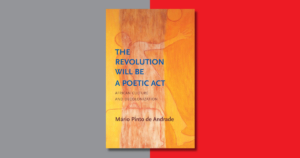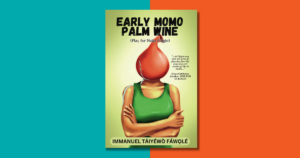
I lift my head. Ikati. The home of my mama and papa and friends and enemies, but is it my home? Why is it bending low at the sight of me, like somebody finding a treasure lost under the table of the world?
“It’s… stunning,” Ms. Tia whispers, making her eyes big, bigger than almost her head.
I wonder why Ms. Tia sometimes likes to say things that don’t always make sense. “Nothing’s turning about this, Ms. Tia. Everything is standing up straight and dry.”
Ms. Tia makes a clicking sound in her throat, gives me a tender, soft look.
The chief climbs out of the car. He pushes two fingers into his lips and makes a loud whistle: Wooooo!
Why is it so quiet? Where is everybody? And then I remember.
My mama told me the story of when they last made a sacrifice like this. She said that around that same time, a too-hot sun was punishing our village, killing our crops and plantations and animals. This whipping-hot sun lasted about six months, and everybody was wondering, questioning what is causing this problem, until the chiefs say all women must beg and make sacrifices for rain.
The day before the sacrifice, the chiefs and the king made an announcement that the whole village must keep silent. Everything and everybody must keep quiet at the first peep of the early-morning sun for fifteen minutes. They say we must make pretend to be dead. One of our old dogs, he barked a sharp bark of hunger in that fifteen minute of quiet, and my big brother, Born-boy—Mama say she never seen him look so angry—he yanked off his left shoe, stone the dog in his buttocks for making that stupid noise.
The chief pushes up his stick of feathers and begins to make a incantation of words: calling the spirits of the earth and the water and the sky to come and make a witness of my coming back, to be ready to climb inside a seat of judging, to be ready to accept my blood or to reject it. He says all this with a shouting voice, while turning around himself, around and around, until he nearly daze and bangs his head on the car-bonnet of Mr. Kola’s car.
Two women come out from afar and walk to meet us, looking like two devil-masquerades. They have slashed their faces left and right, up and down, with charcoal and chalk and pink clay and dragged a circle of eyeshadows around their eyes like eyeglasses, along with a baking of lipstick as pink and as swelling round as a baboon’s buttocks. It cuts across their lips and points nearly to their chin like an arrow. They very much resemble Big Madam on her way to a party.
I am trying to hide myself behind Ms. Tia, to crawl inside her and curl myself in the bottom of her belly, to go back to a time when the only thing that mattered to me was my education.
Ms. Tia grabs my hand, says, “What now? Where do we go?”
I know one of the women. Or are my eyes joking me? I squint, press my eyelids close to measure her as she is marching down like a soldier going to war. Is it who I am thinking it is? Even though she is no longer having a small frame and her stomach is now swelling with pregnant, and her eyes are no longer having the spark of a dream of one time becoming a tailor, I know her.
Me and this girl, we use to live in the same house. Her name is Kike, and it was she who taught me to become a teacher in my mind. Her mother, Labake, is the first wife of Morufu, the man my papa married me for.
The second woman with Kike, I don’t know her name, she falls first to her knees in front of the chief, and as she raises up her hand in a worship-greeting, I see the round top of a local-gun, the color of copper, the type of one Thembu, the hunter, is using to kill the bush-rats that run around in the forest. Why is she hiding a gun? Is she a hunter? Kike climbs to her knees too, one by one, because of her stomach.
The chief is still chanting and spinning around like an empty bottle of Coke. Now he is lifting his stick of feathers, sweeping it around the women’s heads, seven times. I hold Ms. Tia even more tight.
The chief stops turning. He puts his hand on his legs and pants as if he’s about to collapse of a very sudden heart failure problem. He stabs the soil with his stick, striking the stomach of an already dead mango seed, sending it twisting around to near the tire of Mr. Kola’s car.
“Kike,” I call her name and she looks at me first, before she and the other woman rise and march to where I am standing.
“Ms. Tia…” I say, “help me.”
Ms. Tia steps in front of me, pushing her hands out. “Excuse me. Listen. My name is Tia Dada. I am from Lagos, and I–”
The second woman shifts Ms. Tia and her plenty-English introductions to one side and snatches my hand so that my nylon of belongings crashes to the floor. Ms. Tia rushes back, trying to fight the two both women, to pull me away, but the other woman is so strong, she somehow manages to push Ms. Tia to the floor. I watch, afraid, as Ms. Tia lands on her buttocks as if a rock flied out from the sky and knocked her down, burying her under the rain of sand and dirt.
She blinks, says shit and jumps to her feet and comes charging back. Never seen Ms. Tia look so full of rage, anger. “This is illegal!” Ms. Tia shouts. “Let her go!”
I look to Mr. Kola for help, but the idiot man is leaning back on his car and crossing his hand in front of his chest as if he is watching a TV show. “Madam,” he says, a grumble of a warning in his voice, “you better leave them alone before they shoot you!”
Ms Tia keeps on her stubborn rushing at the woman. Kike tries to stop Ms. Tia too, to stop me. Soon all four of us are in a tangle of pushing and pulling and slapping and blowing. But the other woman—| think she was a boxer in another life, she’s so strong—she shocks Ms. Tia with a hot slap, sending her staggering to collapse herself by the mango tree. She faces me, twisting my hands behind my back as if to uproot it from the socket of my shoulders, tying up my wrists tight with a rope. In all of this, she does not speak one word. Just grunting and panting and grunting. I stand with my head bent, too tired to keep fighting, with my bones aching as Kike pulls out a thick black scarf from inside her bra and cover my eyes with it.
Darkness.
They begin to drag me across the square.
Ms. Tia shouts, “No! Please! Hear us out!”
She is running behind us, breathing fast, her canvas-shoe making dum-dum-dum on the ground. Now she is trying to tear the sleeve of my dress, scratching my arms, to save me. The strong woman releases her grip on me for a moment. I stand there, panting, looking left and right in the prison of my covered eyes, hoping maybe they will let me go, release me to run to Ms. Tia, to clean all the dirty on her body.
Suddenly, the pra-pra of a firing gunshot like a bomb. Like a thousand thunders. The air fills with the stink of powder of gun, like a children’s Christmas banger, burning wire.
“Ms. Tia!” I shout, trying to snatch myself from the padlock of Kike’s hands, the strong woman’s grip. “Ms. Tia!”
Ms. Tia groans a sick groan. I hear her crashing to the ground, the slap of her body hitting a rock, the bash of something—a piece of wood-knifing the bone of my ankles.
The ground under my feet swells and falls, and as the two women drag me away, I keep screaming and screaming.
***
Excerpt from AND SO, I ROAR published by Penguin Random House. Copyright © 2024 by Abi Daré.
Buy a copy of the book here: Amazon









COMMENTS -
Reader Interactions